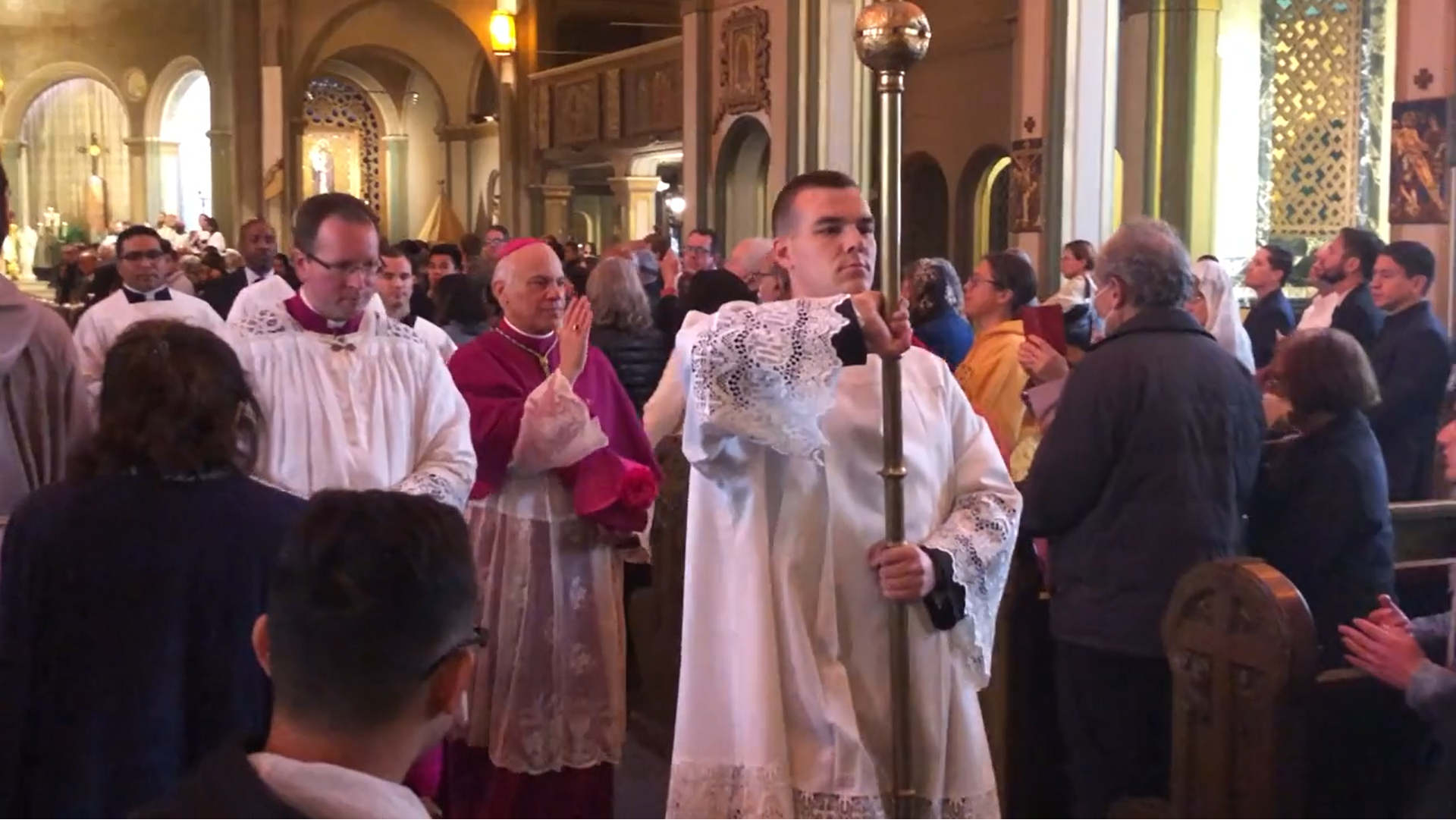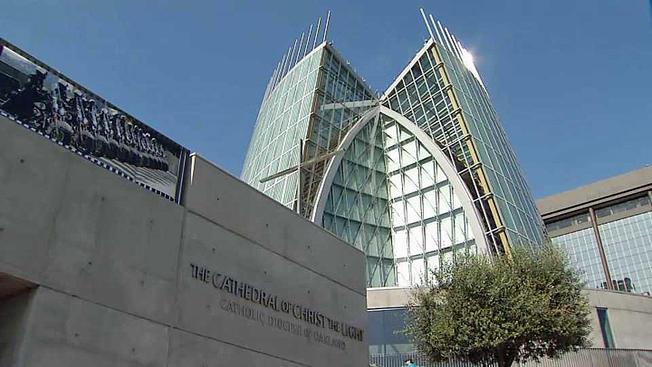When Danielle Lacampagne came forward 21 years ago to report being sexually molested as a child by San Francisco priest Fr. Daniel Carter, she believed his days as a clergyman were numbered.
Turns out she was wrong.
The following year, in 2003, former San Francisco Archbishop William Levada declared Lacampagne’s allegations to be “unfounded.” Carter was returned to ministry and continued to work as a priest over the ensuing two decades.
Now, all these years after Lacampagne’s original accusations, six new alleged victims, both men and women, have come forward about Carter. They accuse the longtime priest in separate lawsuits of sexually abusing them as children at different moments in his career, between the 1970s and 2000.
Get a weekly recap of the latest San Francisco Bay Area housing news. Sign up for NBC Bay Area’s Housing Deconstructed newsletter.
“I stand with them,” Lacampagne said. “I’m very proud of whoever it is that’s coming forward. When I came forward, it was very difficult to do alone. So I’m happy to be here and talk about it. They are not alone.”
The findings come amid an ongoing NBC Bay Area investigation into a wave of new lawsuits hitting the Catholic church across California, made possible by the 2019 Child Victims Act, which temporarily did away with the civil statute of limitations on child sexual abuse cases for a three-year period between 2020 and 2022. More than 1,500 lawsuits were filed against Catholic institutions in Northern California alone.
A spokesperson for the Archdiocese of San Francisco, which employs Carter, declined to comment on his current status as a priest, but videos posted to YouTube show Carter serving at San Francisco’s St. Paul of the Shipwreck as recently as 2021.
“The Archdiocese will be handling lawsuits brought against it via the appropriate legal channels and will not make any comment to the media related to active litigation,” the spokesperson wrote in an email to NBC Bay Area.
Carter’s name appears to be absent from a current list of priests in good standing with the Archdiocese who are allowed to minister.
NBC Bay Area was able to reach Carter by phone, but the priest declined an interview request.
“[Carter], who at the time these new lawsuits were filed, was still in ministry in present day,” said Mike Reck, an attorney with Jeff Anderson and Associates, a law firm representing two of Carter's new accusers. “And that’s what is really, really shocking.”
The six new plaintiffs have filed their lawsuits under pseudonyms and NBC Bay Area has not interviewed them directly. But the legal filings lay out some of their claims.
One of the new lawsuits alleges Carter repeatedly fondled an eight-year-old girl attending a San Francisco Catholic school in 1981. A second plaintiff alleges the priest did similar things to her around the same time. The abuse described in those cases closely mirrors Lacampagne’s own account.
“He was very charismatic,” Lacampagne said. “He was very loud, he was a little bit strict. He was a big presence at the school.”
At the time, Carter worked at Ecole Notre Dame des Victoires, the Catholic grammar school in San Francisco that Lacampagne attended as a child. She said the priest forged a bond with her entire family that transcended the school’s walls.
“My family was fairly Catholic and he became good friends with my father,” Lacampagne said. “I really liked him. He took a liking to me, which wasn’t really a common experience for me as a child.”
But one night in the late 1970s, while the priest was at their home for dinner, Lacampagne said Carter turned from a trusted family friend to her abuser. She was eight years old.
“I was saying goodnight to him and my parents were actually in the other room,” she said. “I was wearing my pajamas and he took his hand and he put it up my pajama shirt and felt my chest area. And then he took his hand and put it down my pajama pants and felt my bottom area and vagina area.”
“I was shocked, I was confused,” Lacampagne said. “At eight you’re not really taught that much about sexuality in a Catholic school. So it’s very confusing, but I knew it was wrong.”
She carried the secret for decades, until 2002, when the clergy sex scandal in Boston was exploding and alleged victims were coming forward across the country.
Lacampagne had become a social worker in Redwood City and said the time felt right to come forward. Especially, she said, since Carter was still working as a priest for the Archdiocese, at Church of the Immaculate Heart of Mary in Belmont.
“As a social worker, I knew all along, for years, that it’s risky not to come forward,” Lacampagne said. “You do it because of the safety of children, because he’s still a priest out there.”
In April 2002, Lacampagne said she reported her abuse directly to the Archdiocese of San Francisco. Later that month, she filed a police report accusing Carter of molesting her as a child. Soon after that, she filed a lawsuit.
Carter was temporarily placed on leave by Archbishop Levada and the church would go on to settle Lacampagne’s lawsuit without an admission of guilt.
But that didn’t spell the end of Carter’s days in ministry. In March of the following year, Levada wrote a letter to Carter, informing the priest the Archdiocese had “reviewed the allegations of sexual abuse of a minor” and “have judged these allegations to be unfounded.” Levada put Carter back to work.
“The Father Carter story, I think, is one of the most shameful for the Archdiocese of San Francisco,” said attorney Rick Simons, who represented Lacampagne in her lawsuit. “The Archdiocese claimed they were going to do an independent review. They did an independent review, but the only thing it was really independent of was the facts.”
Reck agreed, saying the Carter story illustrates why the public should be leery of the church’s internal review process, regardless of the outcomes of the new cases.
“This is an institution that has shown us time and time again that it cannot be trusted to self-police itself,” Reck said.
Lacampagne said she's sharing her story now, so Carter's new accusers know she's in their corner. She can still feel the backlash she experienced when she came forward back in 2002.
“It weighs on you,” she said. “I didn’t want to come forward. It’s not a great thing for my family and my job. But at some point, you have to weigh the safety of children.”
Madison Fishman contributed reporting to this story.



